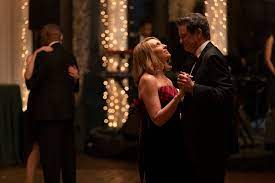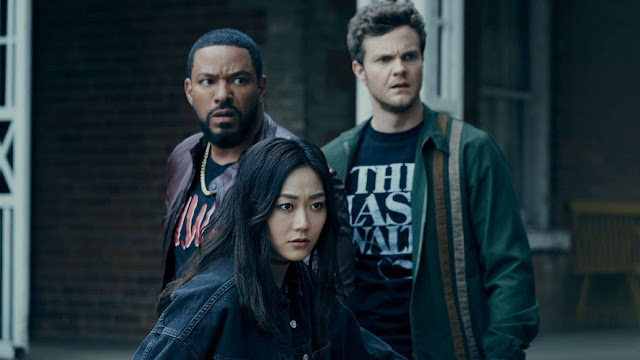The Staircase’s Finale Ends a Familiar Story With a Surprising Twist
Its documentary predecessor was exhaustive, but there’s one thing only fiction can do
More than 20 years after Kathleen Peterson was found dead at the bottom of a staircase in the North Carolina mansion she shared with her husband, novelist Michael Peterson — a Nortel executive who was 48 years old at the time of her death. Her death's circumstances have always been a puzzle to be solved. The medical examiner ruled Peterson's death a homicide despite her claims that she had fallen. Michael Peterson had known another woman who fell to her death, and the fact that he was raising her two children fueled public interest in the conflict between Peterson and his wife's wealth and sexual encounters with men during their marriage.
In December 2001, Kathleen Peterson's life ended, but the sensational did-he-or-didn't-he story that grew out of her absence was just getting started. When a French documentary crew decided to use Michael's indictment for Kathleen's murder as an opportunity to create a compelling portrait of the accused, a work that questioned the criminal justice system itself, the story was worthy of a Dateline treatment.
Filmmakers followed Michael Peterson for a long time in The Staircase, an eight-part documentary series that premiered in 2004. Peterson's retrial in 2011 and his Alford plea in 2017 re-ignited the cameras, as he pleaded guilty to voluntary manslaughter and was sentenced to time served.
This time, it's Antonio Campos and Maggie Cohn who are taking on the story five years after it was effectively ended in a draw. It aims to balance the scales of the narrative by dramatising the conflicting theories about how Kathleen died, not by taking a defined point of view on what exactly happened that night. It's not just that the play depicts Kathleen dying from a fall and a brutal beating; it also depicts the late-stage "owl theory"—that she didn't die from a fall or a beating but rather from bleeding out after an owl attack. Due to the Staircase's extensive compilation, the Peterson story is a big unwieldy universe filled with fictional possibilities that fall along a shifting spectrum of guilt and innocence, love and violence, tragicomic clicheism.
The drama begins by questioning the authority of its award-winning namesake, folding the docuseries' storytellers into the story, making them human where they had been objective lenses.. With this clever turn, the documentary's point of view is not only complicated but also shifted away from Michael (Colin Firth). The cast now includes familiar faces like Michael and Kathleen (Toni Collette), their children, and the legal team in addition to newcomers like director Jean-Xavier de Lestrade (Vincent Vermignon), producer Denis Poncet (Frank Feys), and editor Sophie Brunet (Juliette Binoche), who appears in the first few episodes as a mysterious white-clad lady.
In a tale that has been told so many times that there are no surprises left, Sophie is the one to keep an eye on. The real-world twist is a slap in the face. After a few episodes, we learn that Sophie is more than just Michael's girlfriend; she is also the docuseries editor, a role that Lestrade refers to as the "beating heart." De Lestrade vs. Poncet in the editing room over whether or not to include a scene that deepens Michael's character, or a medical examiner testifying that Kathleen's injuries make it certain she was strangled, is an example of how Sophie's relationship to Michael and the documentary series ask us to lower the ideal of truth to a simple competition between stories. As part of the docuseries' long-form examination, this back-and-forth is less interesting than the other idea that Sophie's character advances: love is just another creation process which necessitates meticulous editing in order to work. Love for Peterson is entwined with her work, and she fights to preserve her loving vision of him even at the cost of the overall story's more complex reality.



Comments
Post a Comment